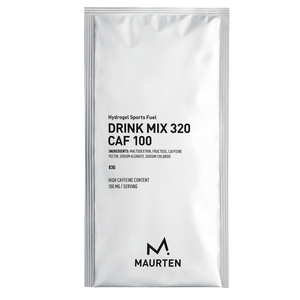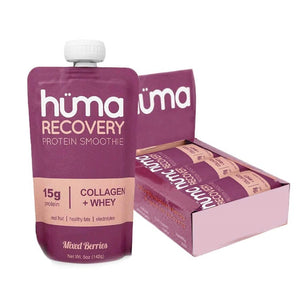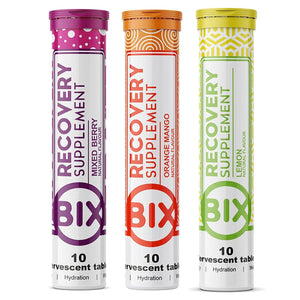It’s your choice - with our knowledge.

Why nutrition is important?
Have you ever been hit with the infamous ‘bonk’ during your main race of the year? Well, we may be the answer for your next personal best.
NUTRITION IS THE ANSWER.
But why? How can nutrition help me fuel and be my best? Why not a brand-new pair of running trainers or those fresh wheels on my bike? Well, carbohydrates are the only thing you need to smash those PBs, and superb training, of course.
Where do I start?
Nutrition for sport shouldn’t be so complicated as first thought to be, so we have compiled a list below of the MAIN pointers you need to get yourself going:
- Healthy & Well-Balanced Diet
- Eating three meals a day
- Drinking enough water
- Large gaps between eating and training
- Workout the amount of carbohydrate and protein you should consume
- Look at the volume of training you’re doing, plus your size and weight
- If you are training for less than one hour, you should aim for 5-7g of carbs per kg of weight (e.g. if you weigh 50kg you should consume 250-350g of carbs) perfect for 5k or 10k training.
- Anything longer than an hour you should be consuming up to 6-10g of carbs per kg (e.g. if you weigh 50kg you should consume 300g-500g of carbs)
- Then protein, you should consume around 1.2g to 2g of protein per kg to help your recovery process.
- Eating foods at the right times
- Research has shown that if you consume carbs up to three or four hours before exercise this increases your performance.
Now you have the basics, you should be thinking about race day. When do I take on carbs during race day? What nutrition should I be taking on? Don’t fright we have you covered.
You can use our Nutrition Calculator to help work out how much nutrition you need for a session.
PRE-RACE NUTRITION
You should eat 3 to 4 hours before you go out on a training run. This increases your liver and muscle glycogen (your stored form of glucose) and will improve your overall performance during your race. This meal should be HIGH in carbs and MODERATE in protein and fat. This is since protein and fat take longer to digest than carbs.
We recommend using Maurten for pre-race fuelling. The Drink Mix 320 is the perfect drink to get those carbs in before embarking on your running race. If you are looking for caffeine, Maurten also offer a caffeinated version Drink Mix 320 CAF containing 100mg of caffeine.
We also recommend taking a caffeine source (e.g. coffee, gel, chew) 45 to 60 minutes before your race. This will help to perform positively.
DURING RACE NUTRITION
It is known, that the main reason you ‘bonk’ is due to diminishing energy stores. The body uses carbs and fat for energy, although it mixes both, carbs are the preferred energy source. The key is to start early when it comes to fuelling in your race.
Consume 30g to 60g per hour to sustain performance.
Research shows consuming 30-60g of carbs per hour maintain blood glucose levels and helps you continue to perform. This does have a limit, your body cannot physically absorb over 60g of carbs per hour. But, when you combine sources, such as maltodextrin and fructose, you can utilise up to 90g of carbs per hour!
This is a massive amount of carbs for your body to take on and may cause stomach discomfort (unless you’ve trained your body to tolerate such an amount).
If you are waiting to take your first gel or drink until an hour into your race, your glycogen stores will already be depleting.
We stock products which have this combination, such as the GEL 100 and the Gel 160 which has a combination of glucose and fructose. Mountain Fuel also offer their Hydrogel Sports Jelly Plus, which combines maltodextrin and glucose and utilises hydrogel technology.
POST RACE NUTRITION
As good as putting your feet up and tucking into your favourite beverage, there are some things we recommend doing before…
Carbs and protein are the main nutrients you need post-race. These play important roles in recovery. Protein is the main nutrient associated with recovery and training changes. Get into the rhythm of having 15-20g protein with your post-training snack or meal (e.g. 500ml milk or recovery shake), and then again with each meal throughout the remainder of the day. The best way to ensure you don't miss the optimal windows for recovery try adding a recovery drink into your post activity routine.
As a simple ready made solution we recommend Hüma Recovery Smoothie to aid the intake of protein.
Carbs are also extremely important for the recovery process. Unless you are partaking in very low exercise, the body will mostly be using carbs for fuel. If you have 24 hours between sessions, ensure you have a carb-rich snack or meal within an hour of finishing, and then continuing to include this throughout the day.
Rehydrate after training or race day is also very important. If your wee is dark coloured after your race then this is to be expected, but the aim is to rehydrate and make this clear again within a few hours. Once this is achieved, then you know you are well hydrated. We recommend the Bix Recovery tablets and Victus 03 After drink mix, to aid recovery whilst ensuring you rehydrate.
Finally, it is seriously important to include fruit and vegetables into your post race meal. This can help recover inflammation and stress as fruit and vegetables contain antioxidants. Look for brightly coloured fruit and veg, and ensure you have at least five to seven portions a day.
TOP TIPS FOR NUTRITION
So, there you go, we hopefully have helped you gain a basic understanding on your nutrition. If you still are unsure, you can contact us, and we will be more than happy to guide you to that next first place finish or PB.
- Science provides guidelines; however, your body can be the deciding factor. We recommend training with the fuel you are going to use on race day to make sure there are no unnecessary stomach discomfort.
- Trial 20-30g of carbs per hour, and then work up to 50-60g carbs per hour in order to train your gut.
- Set your GPS Watch to bleep every 20 to 30 minutes to remind you to fuel.
- Start fuelling early into race day so your gut can absorb carbs easier.
- The final and MAIN rule is: NEVER TRY ANYTHING NEW ON RACE DAY.
It’s your choice - with our knowledge.












































































































